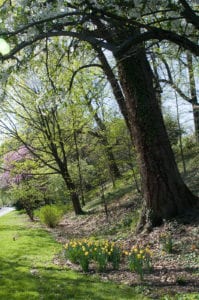Dear Roland Park Neighbors,
All hands on deck. We need your help in the next four days. ASAP please!
A major high-rise housing development is set to be approved by the City Council on Monday, June 19th. The development is called Overlook at Roland Park, and often referred to as Belvedere 2. A freshman City Councilman, Yitzy Schleifer, has worked closely with the developer to fast track this project through City Hall. It will be located at one of the busiest and most dangerous intersections of the City, Falls Road and Northern Parkway.
Mt. Washington and Roland Park, the two largest neighborhoods adjacent to the property, were not included in the process, only the two small neighborhoods above the proposed development (North Roland Park and Poplar Hill). In the past week, the Mt. Washington Improvement Association and the Roland Park Civic League both voted against the development, primarily because of the lack of knowledge. The majority of residents in North Roland Park and Poplar Hill have signed petitions opposing the project. We must stop the rezoning process, called a PUD, until all affected communities have time to study the project. If the project is as good as the developer says it is, then it will be just as good in 60 days after we have all had a chance to understand what the project actually is.
If you want more details about the project, go to the website www.stopthepud.com. Also, please see the attached press release from the Roland Park Civic League.
Here is what we need you to tell our elected officials-
1. Tell them your name and that you are a city resident
2. Ask them to put the PUD legislation on hold (Officially Bill 17-0049)
3. Tell them that the affected neighborhoods need time to learn more.
4. A sample email might include Dear Mayor Pugh, I am a resident of North Baltimore and I am asking that you slow down the PUD zoning for the Overlook at Roland Park so that the communities affected have a chance to learn about the project. Adding a large high rise housing unit at one of the busiest and most dangerous intersections in the city deserves a careful look. Please give us the chance to learn more. Sincerely, _________
Here is who we need you to tell-
1. Call, email, fax and/or tweet Mayor Catherine Pugh: mayor@baltimorecity.gov 410-396-4900 or 410-396-3835, @mayorpugh50, Fax #410-396-3798
2. Call, email, fax and/or tweet Council President Jack Young: CouncilPresident@baltimorecity.gov, 410-396-4804 @prezjackyoung Fax #410-539-0647
3. Call, email, fax and/or tweet Councilman Isaac “Yitzy” Schleifer: Isaac.Schleifer@baltimorecity.gov 410-396-4819 @councilmanYitzy Fax#410-396-6800
4. Sign the online petition at change.org
It will take all of us to get this done, please step up and share with others!






